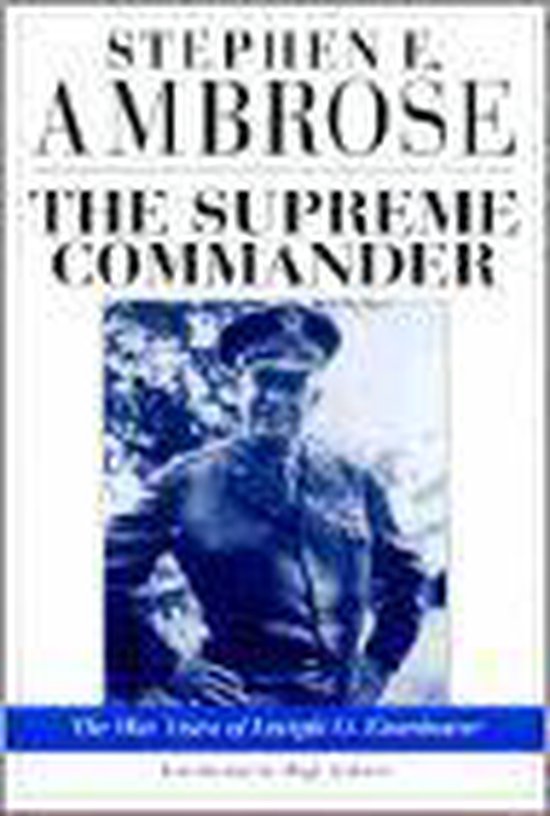
The Supreme Commander
In North Africa, on the beaches at Normandy, and in the Battle of the Bulge, Dwight David Eisenhower proved himself as one of the world's greatest military leaders. Faced with conciliating or disagreeing with such stormy figures as Churchill, Roosevelt, and DeGaulle, and generals like Montgomery and Patton, General Eisenhower showed himself to be as skillful a diplomat as he was a strategist.
Stephen E. Ambrose, associate editor of the General's official papers, analyzes his subject's decisions in The Supreme Commander, which Doubleday first published in 1970. Throughout the book Ambrose traces the steady development of Eisenhower's generalcy--from its dramatic beginnings through his time at the top post of Allied command.
The New York Times Book Review said of The Supreme Commander, It is Mr. Ambrose's special triumph that he has been able to fight through the memoranda, the directives, plans, reports, and official self-serving pieties of the World War II establishment to uncover the idiosyncratic people at its center. ... General Dwight Eisenhower comes remarkably alive. ...[Ambrose's] angle of sight is so fresh and lively that one reads as if one did not know what was coming next. It is better than that: One does know what's coming next--not only the winning of a war but the making of a general--but the interest is in seeing how.
This study of Eisenhower's role in the world's biggest war is absorbing as reading and invaluable as a reference.
Stephen E. Ambrose was Director Emeritus of the Eisenhower Center, Boyd Professor of History at the University of New Orleans, and president of the National D- Day Museum. He was the author of many books, most recently The Mississippi and the Making of a Nation: From the Louisana Purchase to Today. His compilation of 1,400 oral histories from American veterans and authorship of over 20 books established him as one of the foremost historians of the Second World War in Europe. He died October 13, 2002, in Bay St. Louis, Mississippi.
Stephen E. Ambrose, associate editor of the General's official papers, analyzes his subject's decisions in The Supreme Commander, which Doubleday first published in 1970. Throughout the book Ambrose traces the steady development of Eisenhower's generalcy--from its dramatic beginnings through his time at the top post of Allied command.
The New York Times Book Review said of The Supreme Commander, It is Mr. Ambrose's special triumph that he has been able to fight through the memoranda, the directives, plans, reports, and official self-serving pieties of the World War II establishment to uncover the idiosyncratic people at its center. ... General Dwight Eisenhower comes remarkably alive. ...[Ambrose's] angle of sight is so fresh and lively that one reads as if one did not know what was coming next. It is better than that: One does know what's coming next--not only the winning of a war but the making of a general--but the interest is in seeing how.
This study of Eisenhower's role in the world's biggest war is absorbing as reading and invaluable as a reference.
Stephen E. Ambrose was Director Emeritus of the Eisenhower Center, Boyd Professor of History at the University of New Orleans, and president of the National D- Day Museum. He was the author of many books, most recently The Mississippi and the Making of a Nation: From the Louisana Purchase to Today. His compilation of 1,400 oral histories from American veterans and authorship of over 20 books established him as one of the foremost historians of the Second World War in Europe. He died October 13, 2002, in Bay St. Louis, Mississippi.
| Auteur | | Stephen E. Ambrose |
| Taal | | Engels |
| Type | | Paperback |
| Categorie | | Geschiedenis |



